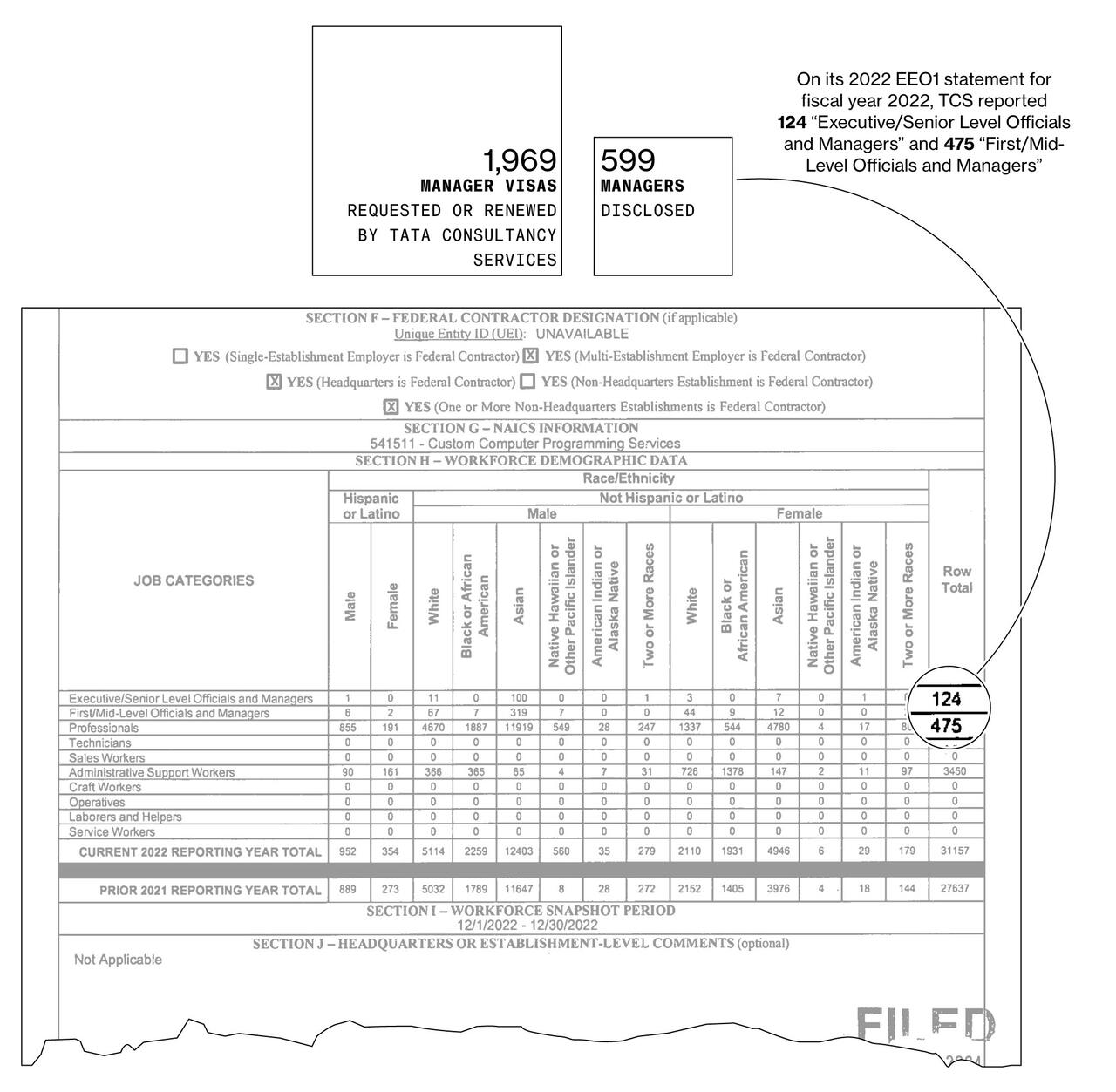In 2017, when Donald Trump took office with restrictions on work visas, former Tata Consultancy Services (TCS) IT chief Anil Kini alleged that he was ordered to falsify internal organizational charts to make the company more managerial.
Kini claims this was hidden to avoid scrutiny of how TCS uses L-1A executive visas, which have fewer restrictions than H-1B visas and no minimum wage requirements, according to a new Bloomberg feature .
Kini and two other former TCS employees filed a whistleblower lawsuit under the False Claims Act, alleging that the company used L-1A visas to bring in non-management employees. The cases were dismissed before the visa fraud complaints could be heard, and Kini’s is still under appeal. He says he opposed the changes to the rankings and was fired in 2018 after filing the lawsuit.
Federal data reviewed by Bloomberg shows that TCS has received more L-1A approvals than the number of executives it disclosed to the U.S. Equal Employment Opportunity Commission, suggesting potential abuse of the visa program. TCS, which serves large U.S. technology companies, has secured more L-1A visas than any other employer in recent years.
The company denies any wrongdoing, claiming that the courts have already rejected these claims.
While Trump initially opposed the work visas, arguing that they would deplete the American workforce, his stance has shifted, now expressing support for such programs. That has created tension between his traditional nationalist base and newer allies in the tech industry. At the same time, legal experts note that gaming of the L-1A program is common, with federal authorities uncovering nearly 200 cases of abuse over the past decade.
Bloomberg’s feature says False Claims Act lawsuits allow whistleblowers to sue companies on behalf of the U.S. government, often alleging corporate fraud against taxpayers. These cases are gaining traction with the Justice Department joining, but the DOJ has declined to support any lawsuits against TCS over L-1A visa abuse, including Anil Kin’s.
TCS said in legal filings that an internal review found “most of the concerns raised by Kin” to be unfounded and that it had “already taken corrective action” to address them. The company, however, did not disclose what its investigation found. A federal judge dismissed Kin’s lawsuit in February, ruling that he had failed to prove how TCS’s visa practices violated financial obligations to the U.S. government.
Kini, who appealed the decision, says he refused to change the organization’s policies and filed two internal complaints in 2017 before taking it to court. The following year, he was fired in what he calls retaliation. TCS would not comment on his firing. “I was proud to work for TCS,” he said. “But some things in life are about being honest about what you do.”
In another case, Indian national Vinod Govindharajan claims that TCS falsely claimed he was a manager in 2013 to obtain an L-1A visa, bypassing stricter H-1B rules. He says the company moved him to New Jersey, where he worked in a sales job without any subordinates and was paid half what his American counterparts earned. Frustrated, he filed a complaint with the EEOC in 2018, which later found “credible documentary evidence” that TCS “frequently falsified documents supporting L-1 visa applications.” The agency also determined that Indian visa workers were underpaid and that TCS retaliated against Govindharajan for speaking out.
The EEOC, however, has no authority over immigration or work-related wage laws, which are separate federal agencies. There is no indication that it has shared its findings with them. An EEOC spokeswoman declined to comment, citing confidentiality rules. “My dream was to move to the United States,” Govindharajan said. “But I was in a sales role that was not management-related.”
You can read the full text here.
